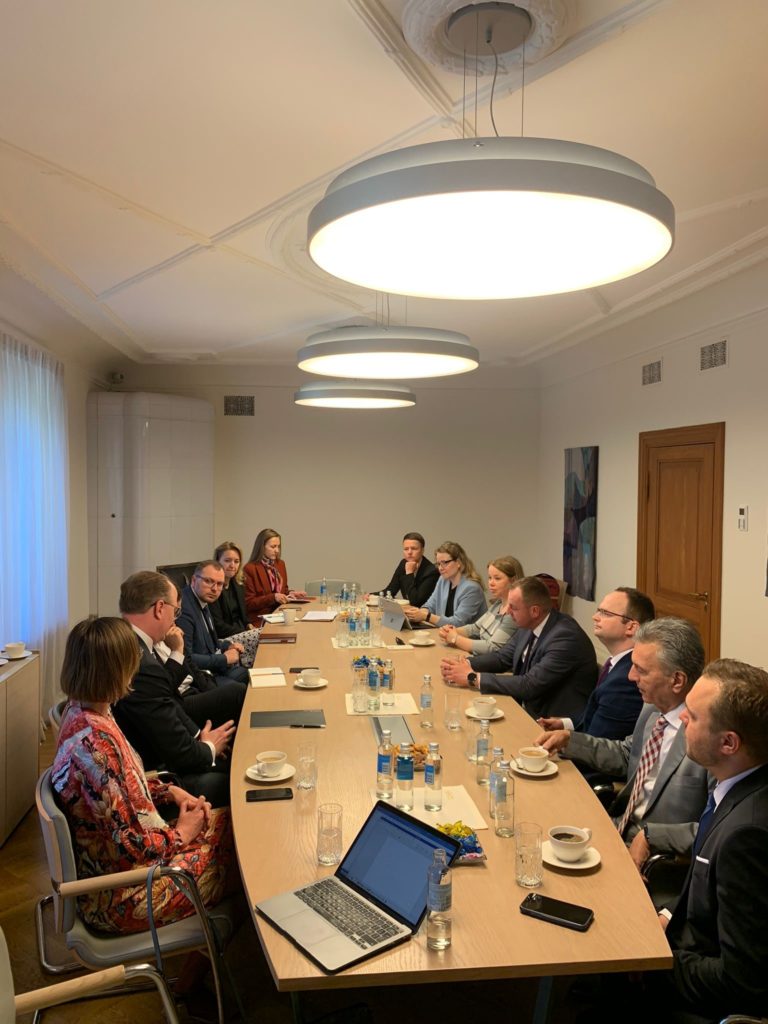On May 24, FICIL members from multiple work groups held a meeting at Riga Castle with Legal Policy Adviser to the President of Latvia Mr. Jānis Pleps, and Information and Digital Policy Adviser to the President of Latvia Ms. Ieva Ilvesa to discuss improvements in the court system, public sector modernisation, public sector cooperation to implement cross sectoral policies and quality of legislation.
Leader of the FICIL Investment Protection and Court Efficiency work group Mr. Māris Vainovskis commented on the need for a predictable legal environment in Latvia, meaning that decision-making must be of high quality and transparency. Mr. Pleps highlighted that the quality of reforms and their alignment with established legal principles has been an important point on the President’s agenda. Altogether Mr. Pleps summarised that from his assessment Parliament’s Committees have done positive work, there is still a need to advance institutional strength of various public sector entities to improve the quality of legislation.
Also, FICIL work group members emphasised a greater need for inter-institution cooperation among public sector institutions when implementing large, impactful, and comprehensive policies, such as digitalisation and EU’s Green Deal. FICIL reiterated a need for clearly established accountability to the responsible institution for implementing horizontal policies. As a potential solution recommended when it comes to digitalisation – establishing a centre of competence, the Office of the Chief Information Officer (the CIO) that is responsible for centralised digital development. Mr. Pleps agreed that the current system is not equipped to deal with larger challenges that require a close cross-sectoral cooperation.
 On the topic of quality of legislation, FICIL Investment Protection and Court Efficiency work group leader Mr. Māris Vainovskis emphasised the need for effective and well-thought-out regulations already from the start of the legislative process to avoid any major objections to proposed regulations at later stages, such as the second or third readings, which can delay or completely stop new legislation from coming into force.
On the topic of quality of legislation, FICIL Investment Protection and Court Efficiency work group leader Mr. Māris Vainovskis emphasised the need for effective and well-thought-out regulations already from the start of the legislative process to avoid any major objections to proposed regulations at later stages, such as the second or third readings, which can delay or completely stop new legislation from coming into force.
Mr. Pleps highlighted an initiative proposed by the President – creation of an independent State Council that would promote the quality of legislative process and stimulate the sustainability of the country. Mr. Pleps explained that independent State Council would be an institution that provides both legal and substantive recommendations. These recommendations would be balanced and take into consideration country’s long-term sustainability. Other topics were also discussed, such as the current state of the Court of Economic Affairs, ways to effectively combat shadow economy, data-based decision making and green energy.


